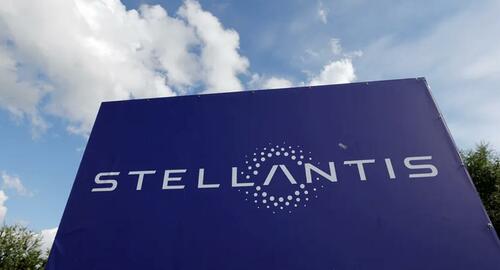But...but...we were told tariffs were almost assuredly inflationary?
That doesn't necessarily seem to be the case in the world of Stellantis and Jeep, where it appears at first glance the new cost of tariffs are being somewhat, if not totally, absorbed by the corporation.
Stellantis, the automaker behind Jeep and Ram, said it will absorb some costs from President Trump’s new tariffs—one of the first signs of how the auto industry is bracing for the trade war, as was reported by Quartz.
The report says that the 25% tariff on imported vehicles, set to take effect within a month, is expected to sharply raise car prices. Stellantis, based in the Netherlands, told suppliers it would help offset the impact, though details remain unclear.
The move comes as Stellantis pauses production in Mexico and Canada and lays off U.S. workers.
There will be some sort of assessment of the criticality of the parts,” said Mitch Zajac, an auto industry attorney, but cautioned the company may walk back the support.
Recall we wrote hours ago that Deutsche Bank said automakers would share the burden of tariffs. They said in a note late last week that the directional takeaways they had for the auto industry going forward were "relatively unchanged" and the firm shared detail on where it believes tariff impact will land.
In an analysis covering virtually every model sold in the U.S., the bank did warn however that the fallout from protectionist policy won't be limited to foreign automakers—it will ripple through the entire automotive ecosystem, from suppliers to consumers.
According to Deutsche, the cost of new tariffs will be shared across multiple layers: original equipment manufacturers (OEMs), end consumers, dealers, and Tier-1 suppliers.
Deutsche Bank notes, “OEMs will need to step in and absorb the tariffs for some suppliers... similar to the dynamics during COVID.”
Longer term, the bank sees a potential wave of announcements around onshoring, especially as companies seek political goodwill with the current administration. However, such structural changes—relocating supply chains, building new factories, and hiring en masse—could take years to materialize, especially in a politically uncertain environment.
Economists like Jim Rickards have argued that it's a myth that tariffs cause inflation, making the point that inflation is mainly driven by an expanded money supply—something tariffs don’t affect. He called the idea of tariffs causing inflation "completely wrong" in a recent interview where he goes into detail about his reasoning.
"Who actually pays the tariff? Well, the importer writes the check at the port of entry—you know, Port of L.A., Port of Houston—you've got to write the check to the Treasury Department for the amount of the tariffs. But who bears the cost economically? How does that cost get spread?" Rickards says.
"The one place it does not go is to the consumer. Because if you're a distributor—you're, I don't know, Walmart, Target, anybody—if you could raise prices, you would just do it. Why? Who cares about tariffs? You would just raise prices if you could. Everybody would. But they can't."
He continues: "The consumer's tapped out. Credit card lines are used up, auto loan delinquencies are rising, unemployment's going up. It's not a nightmare, but it's going up. Real wages are stagnant. You know, mortgage interest rates continue to remain high. Just a whole long list of reasons why the consumer's tapped out. They can't raise prices."
"So who bears it? Well, they either push it back up the supply chain to the producer and say, 'Hey, sorry producer, you have to lower your prices to me so that when we add the tariff, my net price is the same.' Or the importer might bear part of it. Or the importer and the producer—the exporter and the importer, in other words—might share it. But either way, their gross revenues go down, their margins go down."
"But the one person who does not pay it is the consumer. So it's not inflationary. In fact, it could actually be deflationary if you're forcing producers to lower their costs."
Loading...
